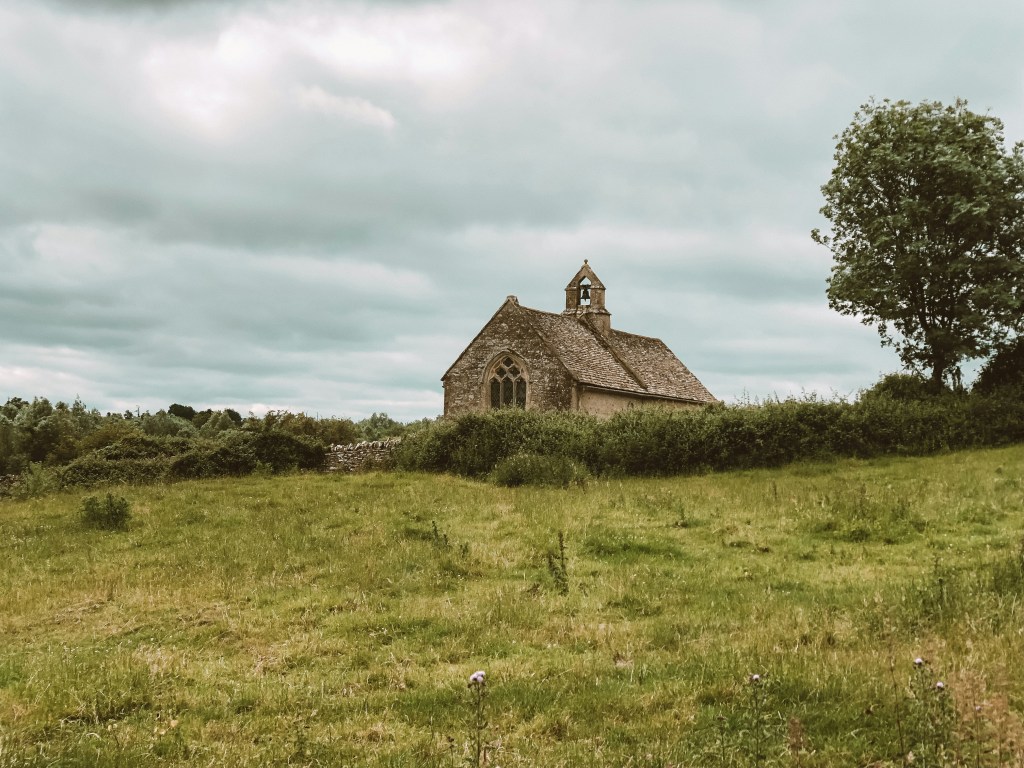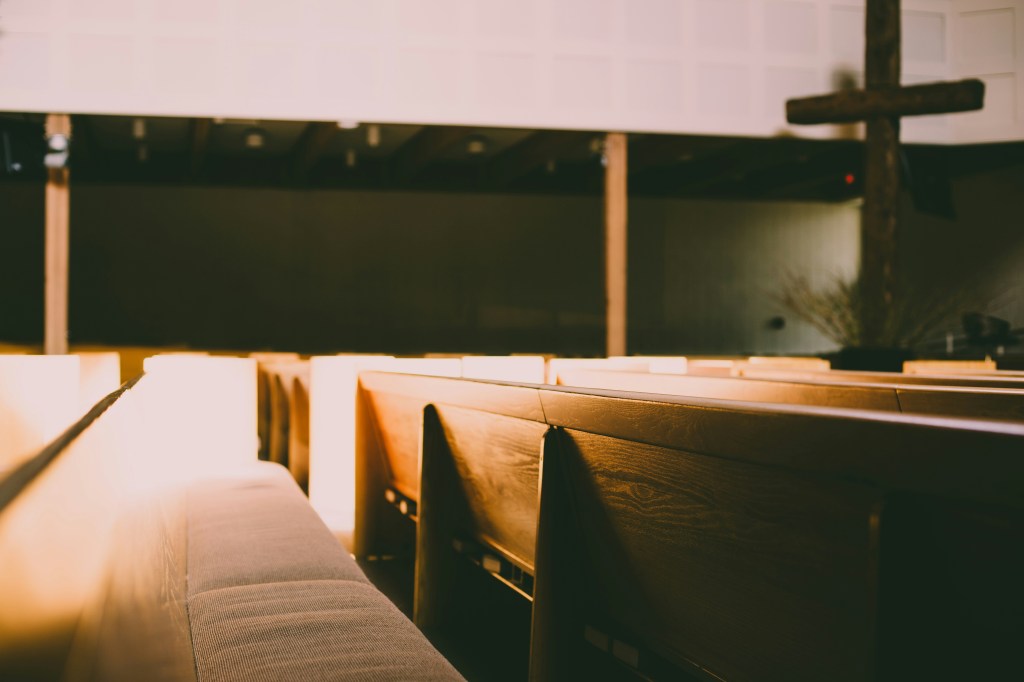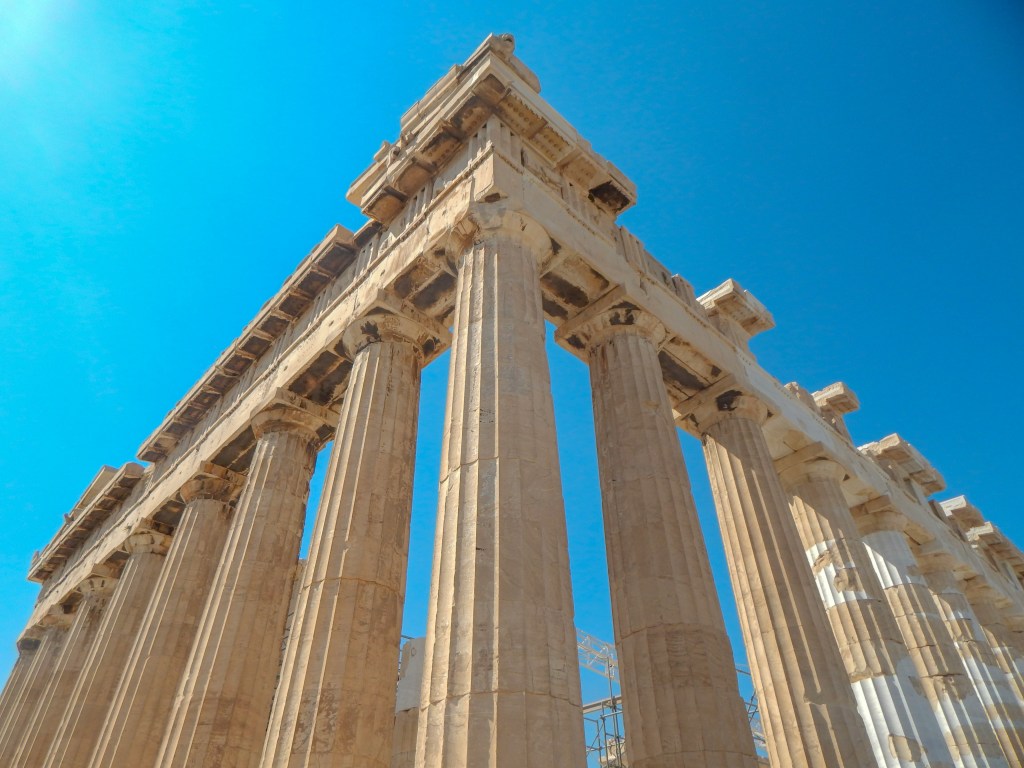Introduction
Turn in your bibles to Genesis 2, we will cover from verse 4 of chapter 2 all the way through chapter 3. The focus will be on man and the first law, the fall, and the hope of Paradise restored. I am sure this won’t be the last time I say that it is difficult to grab on to a singular theme in such a large section of text especially when there are so many options available. I made the promise last week that we would look to Christ in all things and the hope that is offered by him so with that as our guide, I pray that our God would show us this morning that there is hope in the midst of suffering.
That despite the curse that has fallen upon us as a result of transgressing the law of God, he was then and is still now offering us his grace. Despite the fact that we have been cast out of Eden to labor in the brambles, our God has promised that paradise will once again be restored. Most importantly we can be assured that despite the enemies best efforts there is nothing the deceiver can do to stop it. This is a great hope especially for those who might be going through some things right now. Paradise is coming, we will get there.
With that as the backdrop and before we read the text, I want to put a few things on your mind that I pray will become clearer as we continue. God places the tree in the garden and establishes the first covenant with man, don’t eat and you will live, knowing how that will end. Why? That is certainly a question we have wrestled with since the day of the fall. God gave man freedom to obey or not obey knowing that in this freedom to choose he would try to take what he does not have and what is not his to take. Even in a perfect world, freedom to choose, often chooses wrong. We love freedom until it turns against us. We fly the banner of free will, high and proud, but you do see where it got us right?
It was the desire for freedom and autonomy from God that got us into trouble first and this is the same desire that gets us into trouble every time now. Don’t believe me, go read Exodus, Numbers, Deuteronomy, and Judges, to name a few. It is for this reason that Christ essentially says, when you’re done playing around with your freedom, that always gets you into trouble, I’ll be here waiting. When you are tired of eating with the pigs I’ve got a yoke for you here but I’ve made it light and I have a burden for you but it’s an easy one. And by the way, we will slaughter the fattened calf and feast when you come home.
This is grace, this is forgiveness, this is willing slavery, this is the gospel that is only possible if we walk the lonely roads where freedom takes us. So that is where we should begin. Let us read a few passages from our text starting in verse 5 of chapter 2
5 When no bush of the field was yet in the land and no small plant of the field had yet sprung up—for the Lord God had not caused it to rain on the land, and there was no man to work the ground, 6 and a mist was going up from the land and was watering the whole face of the ground— 7 then the Lord God formed the man of dust from the ground and breathed into his nostrils the breath of life, and the man became a living creature. 8 And the Lord God planted a garden in Eden, in the east, and there he put the man whom he had formed. 9 And out of the ground the Lord God made to spring up every tree that is pleasant to the sight and good for food. The tree of life was in the midst of the garden, and the tree of the knowledge of good and evil.
15 The Lord God took the man and put him in the garden of Eden to work it and keep it. 16 And the Lord God commanded the man, saying, “You may surely eat of every tree of the garden, 17 but of the tree of the knowledge of good and evil you shall not eat, for in the day that you eat of it you shall surely die.”
Now the serpent was more crafty than any other beast of the field that the Lord God had made.
He said to the woman, “Did God actually say, ‘You shall not eat of any tree in the garden’?” 2 And the woman said to the serpent, “We may eat of the fruit of the trees in the garden, 3 but God said, ‘You shall not eat of the fruit of the tree that is in the midst of the garden, neither shall you touch it, lest you die.’ ” 4 But the serpent said to the woman, “You will not surely die. 5 For God knows that when you eat of it your eyes will be opened, and you will be like God, knowing good and evil.” 6 So when the woman saw that the tree was good for food, and that it was a delight to the eyes, and that the tree was to be desired to make one wise, she took of its fruit and ate, and she also gave some to her husband who was with her, and he ate. 7 Then the eyes of both were opened, and they knew that they were naked. And they sewed fig leaves together and made themselves loincloths.
8 And they heard the sound of the Lord God walking in the garden in the cool of the day, and the man and his wife hid themselves from the presence of the Lord God among the trees of the garden. 9 But the Lord God called to the man and said to him, “Where are you?” 10 And he said, “I heard the sound of you in the garden, and I was afraid, because I was naked, and I hid myself.” 11 He said, “Who told you that you were naked? Have you eaten of the tree of which I commanded you not to eat?” 12 The man said, “The woman whom you gave to be with me, she gave me fruit of the tree, and I ate.” 13 Then the Lord God said to the woman, “What is this that you have done?” The woman said, “The serpent deceived me, and I ate.”
14 The Lord God said to the serpent, “Because you have done this, cursed are you above all livestock and above all beasts of the field; on your belly you shall go, and dust you shall eat all the days of your life. 15 I will put enmity between you and the woman, and between your offspring and her offspring; he shall bruise your head, and you shall bruise his heel.”
Genesis 2:4-3:15
The First Law
Have you ever learned from your mistakes? It has become somewhat of a trite or overused thought but we learn far more from our failures than we do from our successes. Much the same way as the word tells us that we are refined and sanctified by our trials not by triumphs. It is fire that refines us, not a cool breeze. As much as I do enjoy a metaphorical cool breeze, character is built in the furnace. The law then was never intended to be the thing by which we could prove ourselves because God knew, even back in the garden with a law as simple as don’t eat from this one tree, we would fail. The law was meant to condemn us. It was meant to show us (at least primarily) that we are not God. This is perhaps why the deception of the enemy was so clever. The thing that was meant to show us we aren’t God and can never be God was the same thing that was twisted to make us think we could be like him.
The law, yes even the first law, was always meant to point us to the need of a savior. Not that we can ever, by some action of our own, be like God but that his likeness and righteousness is something that can only be given to us by his grace. The law points to Christ. See, I told you I would point everything to Christ. In this case though it isn’t even a stretch to do so.
20 He was foreknown before the foundation of the world but was made manifest in the last times for the sake of you 21 who through him are believers in God, who raised him from the dead and gave him glory, so that your faith and hope are in God.
1 Peter 1:20-21
We talked about this at length when we went through 1 Peter but Christ was always the plan. The obvious rhetorical question is, how could Christ have been the plan since the foundation of the world if the first law was not intended to condemn us and ultimately point us to the salvation offered as a free gift? Christ was made manifest, that is became flesh in real time and real space to really save people from their sin and as a result our faith and hope are in him but this was not a reaction but the foreordained plan of God. Still don’t believe me? Hear the words of Paul.
20 For by works of the law no human being will be justified in his sight, since through the law comes knowledge of sin. 21 But now the righteousness of God has been manifested apart from the law, although the Law and the Prophets bear witness to it— 22 the righteousness of God through faith in Jesus Christ for all who believe. For there is no distinction: 23 for all have sinned and fall short of the glory of God, 24 and are justified by his grace as a gift, through the redemption that is in Christ Jesus, 25 whom God put forward as a propitiation by his blood, to be received by faith. This was to show God’s righteousness, because in his divine forbearance he had passed over former sins. 26 It was to show his righteousness at the present time, so that he might be just and the justifier of the one who has faith in Jesus.
Romans 3: 20-26
You may be thinking, as I still wrestle with, in your very finite and limited capacity of understanding why would God even give the first law then if the intent was to ultimately condemn us by it and reveal sin through it? Doesn’t that make God mean if he did all this not just knowing what would happen but planning the whole thing? To that I say this. In our very humble minds we will always assign some negative attribute to God when we attempt to comprehend him. You either call him “mean” because he planned all this or he must be “weak” because he didn’t. The alternative to the “mean” God is a “weak” God. A God who didn’t foresee all these things. Who put the tree in the garden and issued the first law with a hope and a smile crossing his celestial fingers that everything will turn out ok. A God who since that first creation and the first law has been running along behind man cleaning up his mess and will ultimately just have to return again after man has all but utterly destroyed everything God has made.
Is that our God? If my theological position and understanding of God’s will and plan paints him as “mean” in the minds of the foolish then I will gladly concede to that human label over the position that paints him as weak. Our God is a lot of things but weak and reactionary are not among those, that I can be certain. But our God is anything but mean, Christ is not mean.
He is the beginning, the firstborn from the dead, that in everything he might be preeminent. (surpassing all others) 19 For in him all the fullness of God was pleased to dwell, 20 and through him to reconcile to himself all things, whether on earth or in heaven, making peace by the blood of his cross.
21 And you, who once were alienated and hostile in mind, doing evil deeds, 22 he has now reconciled in his body of flesh by his death, in order to present you holy and blameless and above reproach before him, 23 if indeed you continue in the faith, stable and steadfast, not shifting from the hope of the gospel that you heard, which has been proclaimed in all creation under heaven, and of which I, Paul, became a minister.
to make the word of God fully known, 26 the mystery hidden for ages and generations but now revealed to his saints. 27 To them God chose to make known how great among the Gentiles are the riches of the glory of this mystery, which is Christ in you, the hope of glory. 28 Him we proclaim, warning everyone and teaching everyone with all wisdom, that we may present everyone mature in Christ. 29 For this I toil, struggling with all his energy that he powerfully works within me.
Colossians 1: 18-23 – 25-29
What I want us to see in the giving of this first law is the wholly otherness of our God. The preeminence of Christ. The reality that he surpasses all others. The reality that no matter how hard we try we will never be like him, we will never see as he sees. He is transcendent and so far beyond us we have no hope of ever getting to him. Who can know the mind of God? His ways are so much higher than our ways. But in his grace, and through his providence by the work of Christ he has revealed to us the riches of his glory, the loving kindness of his nature, and how desperately we need his mercy. This is what we must see first in the law and more specifically, in the giving of the first law.
The Fall
Let us turn our attention now to the fall. I want to focus on the four words that crippled the first humans and every human who has lived since. “Did God actually say?” These words sparked the first fall, both physically and spiritually for man and continues even today. What is veiled in those words is a questioning of the validity and efficacy of the true words of God. I know that’s what his word says, or in Adam and Eve’s case what he told you, but did God actually say that? “I mean think about the culture, think about how we are supposed to love people, doesn’t he want you to be happy and prosperous, doesn’t he want his creation to see as he sees? Did God actually say that?”
I am hungry, I am tired, I am sad and lonely, I am struggling, I am depressed, I just want a little morsel of bread to fill my emptiness. Can’t I just get a little bread? Fortunately for us, Christ was faced with the same temptation that our first parents faced and that we all face and responded not with “did God actually say”, but with what God actually said. “Man shall not live on bread alone but on every word that proceeds from the mouth of God.”
I of course sympathize with all our hunger pains because our God sympathizes with them. He became like us in every way, and walked with us in every way and I am sure that many of us have good intentions when we ask the question, “did God actually say.” The reality though is that the road to hell is paved with good intentions. Or as C.S Lewis puts it in “The Screwtape Letters,”
The safest road to hell is the gradual one – the gentle slope, soft underfoot, without sudden turnings, without milestones, without signposts.
C.S. Lewis
Even the context of the word of God to the Israelists who were wandering in the wilderness for 40 years should inform us.
2 And you shall remember the whole way that the Lord your God has led you these forty years in the wilderness, that he might humble you, testing you to know what was in your heart, whether you would keep his commandments or not. 3 And he humbled you and let you hunger and fed you with manna, which you did not know, nor did your fathers know, that he might make you know that man does not live by bread alone, but man lives by every word that comes from the mouth of the Lord.
Deuteronomy 8:2-3
The questioning of the word of God and failing to submit to it and obey it was always the problem. That still is the problem. Jesus faced this directly with his disciples as well. When he taught hard things and gave difficult commands people walked away from him, turned their backs on him. Specifically when he said, “This is why I told you that no one can come to me unless it is granted him by the Father.” We don’t have time to go into that tangent this morning but listen to the response to those words.
66 After this many of his disciples turned back and no longer walked with him. 67 So Jesus said to the twelve, “Do you want to go away as well?” 68 Simon Peter answered him, “Lord, to whom shall we go? You have the words of eternal life, 69 and we have believed, and have come to know, that you are the Holy One of God.”
John 6: 66-69
All that to say, let us not make the same mistake our first parents made and so many after them. We don’t get to decide which words to obey. Nor do we find life in anything else other than the words of God. Does this make life tougher, and more uncomfortable? Does it mean we don’t always get what we want, when we want it? Does it mean that we are going to be pulled and strained? Yes to all but man does not live on bread alone and there is a great hope for those who live on every word that proceeds from the mouth of God.
That hope begins in the text we read this morning in the fact that even in our sin, our God seeks us out. Adam and Eve in their sin hid from God because of their shame. They didn’t want to see him or face him so they hid. “But the Lord God called to the man and said to him, where are you?” This, in and of itself, is a grace that in man’s hiding the Lord seeks and calls, “where are you?” I venture to guess that there is much more in those words than location, for surely the Lord God knew where they were. I wish I had time to explore that further but I will leave that to your own personal study. I will say that even here, before we have the pronounced curses of the fall and the promise of restoration we see the true character of our God who doesn’t leave us hiding, but seeks us out and calls to us to come out and face him.
Paradise Restored
Face him we must. Adam and Eve had to walk out from behind the bushes and face God in their sin didn’t they? While the consequences were painful, they were shown mercy and given hope. The tragedy was that those things which would have otherwise been a blessing are now a curse to them. The woman, bringing children into the world and fulfilling the command of God to fill the Earth should have been that greatest blessing and delight for her but now it is difficult and painful. Such that many now dread the very thing meant to be a blessing. The man, whose command was to subdue the Earth, working it should have been a great blessing to him but it is now sweaty and difficult. The land itself wages war against him.
The animals which Adam named and knew now flee and fight him. Can you just imagine that pain and sorrow of being in paradise only to have it all melt away like the wax of a candle. To have all these great blessings now become curses to you. What a tragedy. This is what turning from the word of God has done. This is what deception and the twisting of God’s word has done. But again, there is hope for us.
The first gospel proclamation was made by God himself. “I will put enmity between you and the woman, and between your offspring and her offspring; he shall bruise your head, and you shall bruise his heel.” Side note: the offspring of the serpent are not snakes and God is not saying here that part of the curse is that women will be afraid of snakes. The deceiver in the garden was not a snake as perhaps you have been led to believe but I will save that for wine and charcuterie. That probably needs to be a thing.
What this amounts to is the first promise of paradise restored. Right in the midst of pronouncing the curse upon creation for sin is the promise that the curse will not last forever. The vision of Eden covering the whole of Earth is an eternal one. Granted it was slightly delayed and we are presently taking the long way around to get there but get there we will. What man meant for evil, God meant for good. When paradise is finally restored, I have no doubt that we shall know why we wandered in the wilderness. We shall one day hear the Lord our God walking in the garden but we will not hide from him in our shame. He will wipe every tear from our eye and we shall be with him forever.
Conclusion
I’ll say one final thing in conclusion. After man sinned, God banished man from his direct presence and access to the tree of life which gives eternal life. In doing that he placed the cherubim and a flaming sword to guard the entrance to the tree of life. This picture was used many times throughout scripture but most importantly, for our purposes this morning, in Exodus when God commanded Moses on the building of the tabernacle and the plans for the veil guarding the entrance into the holy of holies, what do you supposed he commanded to be embroidered on that veil?
31 “And you shall make a veil of blue and purple and scarlet yarns and fine twined linen. It shall be made with cherubim skillfully worked into it.
Exodus 26: 31
Cherubim shall guard the entrance into the holy presence of God. What happened when our Lord finished his work on the cross? The veil separating the presence of God was torn, the veil which was adorned with cherubim. Surely we see the connection that God was drawing for us that in Christ we find not only the path into the presence of God but also access to the tree of life, that is entrance into Eden. In the name of Christ and through his work we are given access back into paradise. The cherubim have stepped aside, the veil is torn, the curse is broken, paradise and eternal life are open once again. Not because of anything else other than God has made good on his promise to restore what was lost in our sin. Hear the words of Revelation 22
22 Then the angel showed me the river of the water of life, bright as crystal, flowing from the throne of God and of the Lamb 2 through the middle of the street of the city; also, on either side of the river, the tree of life with its twelve kinds of fruit, yielding its fruit each month. The leaves of the tree were for the healing of the nations. 3 No longer will there be anything accursed, but the throne of God and of the Lamb will be in it, and his servants will worship him. 4 They will see his face, and his name will be on their foreheads. 5 And night will be no more. They will need no light of lamp or sun, for the Lord God will be their light, and they will reign forever and ever.
Revelation 22: 1-5
He has done this great thing. Perhaps he is calling to you even now, “where are you?” Will you stay hidden? Or will you come to him to receive the promise of eternal life and paradise? Come to him this morning broken sinners and receive the gift of salvation and eternal life. Let us thank our God that in Christ Paradise is restored. Amen.
Resources
The Screwtape Letters – C.S.Lewis – https://amzn.to/43XQdA4
ESV Study Bible – https://amzn.to/3VYli4J
LSB Bible – https://amzn.to/4aOQ58e







Leave a comment